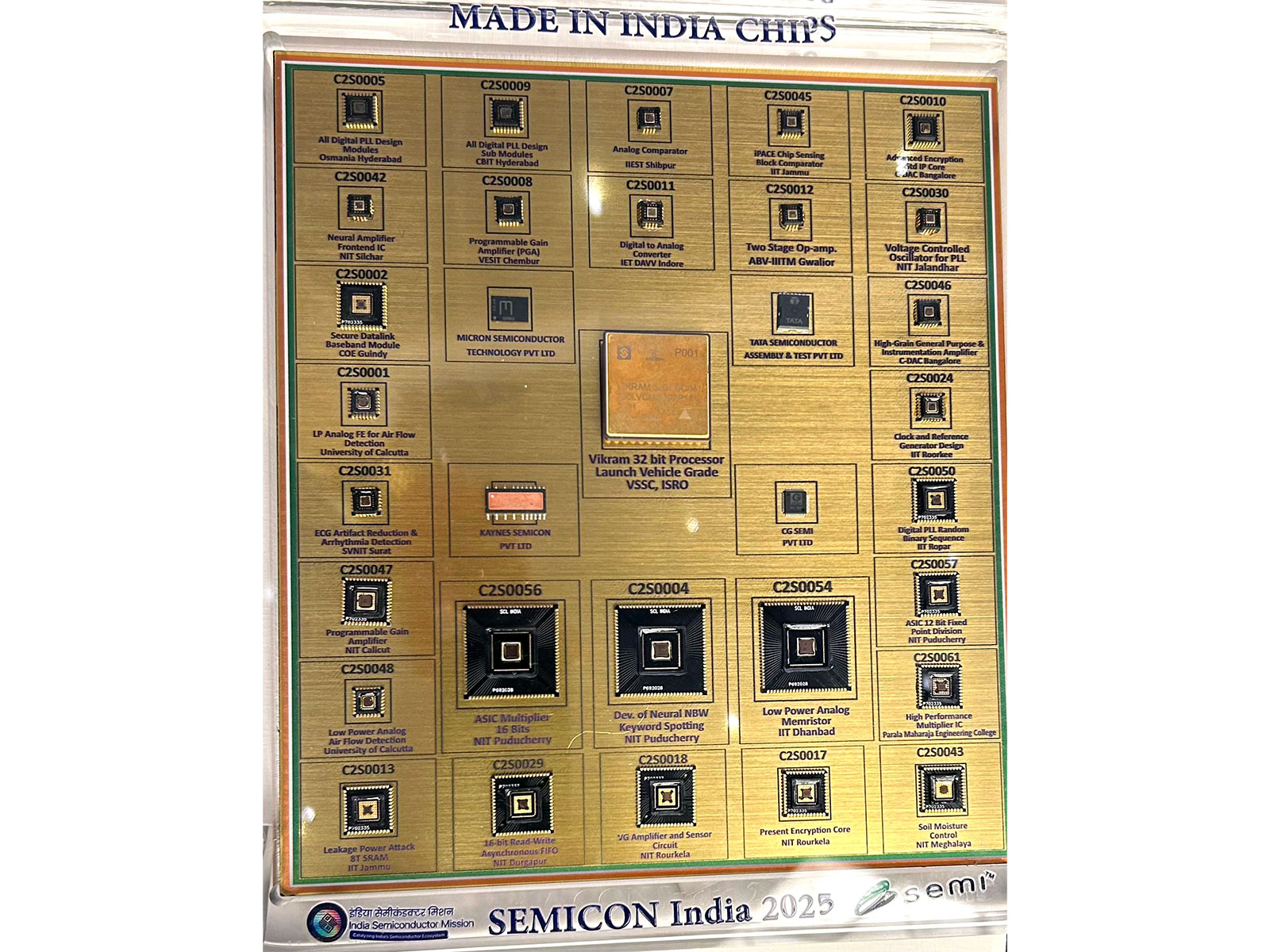New Delhi [India], September 12 (ANI): The global semiconductor industry is set for a transformative decade, with demand expected to surge across sectors ranging from artificial intelligence and automotive to healthcare and renewable energy.
According to PwC’s latest report, ‘Semiconductor and Beyond’ the market is projects to expand from USD 627 billion in 2024 to USD 1.03 trillion by 2030, registering a compound annual growth rate (CAGR) of 8.6 per cent.
“As a backbone and enabler of data centers, AI, autonomous vehicles, smartphone and further emerging technological trends, the global semiconductor market is projected to grow from USD 627B (2024) to USD 1,030B (2030F), driven by widespread advancements across end markets.” noted the report.
The findings highlight that semiconductors, long considered the backbone of digital infrastructure, are now becoming central to economic growth and technological competitiveness.
Server and network chips are forecast to be the fastest-growing category with an annual growth rate of 11.6 per cent, driven by the proliferation of generative AI applications and the escalating need for high-performance computing. Automotive follows, with a 10.7 per cent growth rate as electrification, autonomous driving, and software-defined vehicles expand semiconductor content in cars.
The report notes that while the U.S. retains dominance in chip design and Asia leads in fabrication, the global supply chain is increasingly under pressure from geopolitical uncertainties, export controls, and material restrictions. Southeast Asia’s edge in packaging technologies is emerging as a critical factor.
PwC said that evolving trade alliances and national security concerns could reshape the industry landscape. “Export controls, restrictions on critical materials, and shifting trade alliances are redefining the semiconductor landscape, requiring companies to navigate increasing complexity while maintaining their competitive edge,” the report added.
The race for supply chain resilience and technological sovereignty is pushing governments to invest heavily in domestic production, even as structural challenges persist.
In consumer and industrial markets, semiconductors are embedding deeper into everyday life. Computing devices such as smartphones and PCs, once seen as mature markets, are experiencing a revival with the integration of on-device AI and neural processing units (NPUs). Similarly, home appliances are becoming smarter and more interconnected, supported by AI processors, power management ICs, and connectivity chips.
Industrial applications are equally transformative, spanning healthcare, renewable energy, smart manufacturing, and defence. Medical devices, robotic surgery systems, and AI-powered diagnostics are increasing chip intensity, while renewable energy growth is fuelling demand for silicon carbide-based power semiconductors to manage high-voltage environments. Smart factories and automated agriculture are also propelling demand for AI chips, sensors, and connectivity ICs.
The report says that future growth will depend not only on technological advancements but also on how companies and governments navigate supply chain complexities. Emerging technologies such as AI accelerators, advanced memory, high-bandwidth connectivity, and next-generation packaging are expected to dominate the post-2030 semiconductor era.
As industries move into a hyper-connected, AI-driven world, semiconductors will continue to play an indispensable role, powering not only devices and vehicles but also shaping the future of energy, healthcare, and defence. (ANI)
Disclaimer: This story is auto-generated from a syndicated feed of ANI; only the image & headline may have been reworked by News Services Division of World News Network Inc Ltd and Palghar News and Pune News and World News
HINDI, MARATHI, GUJARATI, TAMIL, TELUGU, BENGALI, KANNADA, ORIYA, PUNJABI, URDU, MALAYALAM
For more details and packages













